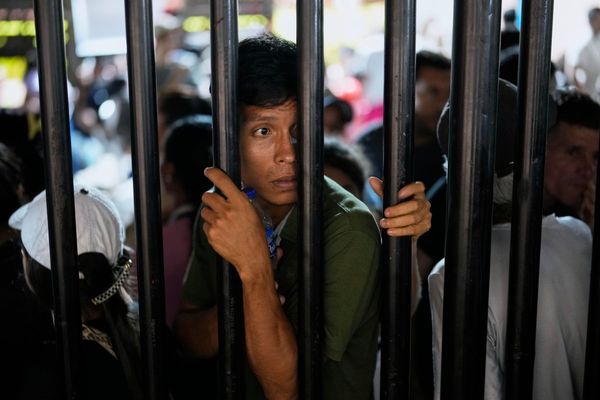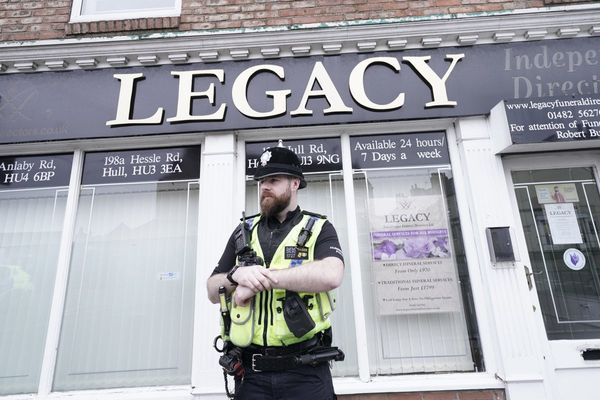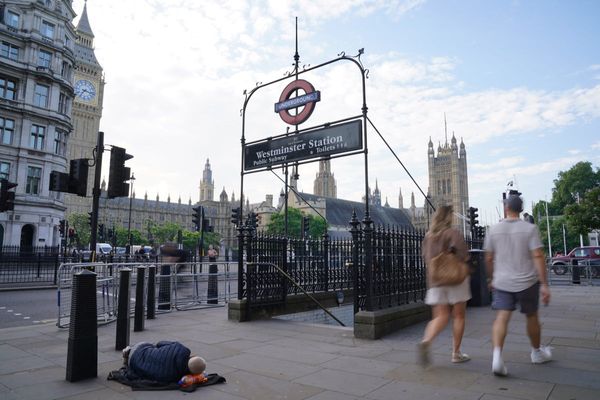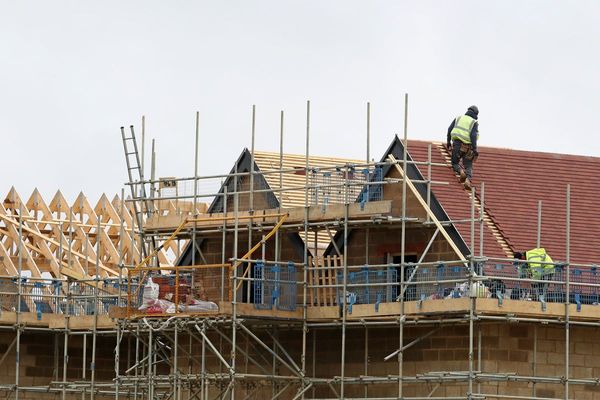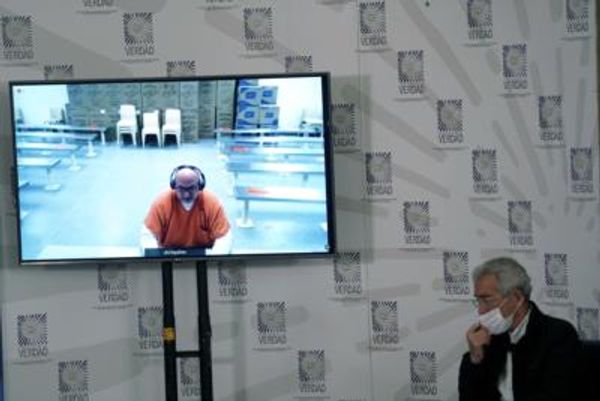
Siversk (Ukraine) (AFP) - The Ukrainian army retreated from the strategic city of Lysychansk over the weekend, as Russia claimed a major victory by seizing control of the entire eastern Lugansk region.
The Ukrainian withdrawal followed weeks of fierce fighting and marked a decisive breakthrough for Moscow's forces more than four months after their invasion and after turning their focus away from the capital Kyiv.
Leaders from dozens of countries and international organisations will meet Monday in Switzerland to map out a "Marshall Plan" to rebuild Ukraine -- aimed to begin even as Russia's war efforts continue to rage.
A major flashpoint in the conflict, Lysychansk had been the final holdout in the Lugansk area of the eastern Donbas region and Moscow's capture of it frees up Russian forces to advance on Kramatorsk and Sloviansk in neighbouring Donetsk.
"The continuation of the defence of the city would lead to fatal consequences" in the face of Russia's superiority in numbers and equipment, the Ukrainian army said in a statement announcing its retreat Sunday evening.
"In order to preserve the lives of Ukrainian defenders, a decision was made to withdraw.
"Unfortunately, steel will and patriotism are not enough for success -- material and technical resources are needed."
The fall of Lysychansk comes after Russian forces seized its twin city of Severodonetsk last week after bouts of intense fighting.
In an address late Sunday, Zelensky vowed Kyiv would fight on and ensure the military had "the most modern weapons".
"Ukraine will reach the level when the fire superiority of the occupiers will be levelled."
The latest country to provide aid was Australia, whose Prime Minister Anthony Albanese on Sunday pledged further military support -- including armoured vehicles and drones during a meeting with Zelensky in Kyiv.
'Shooting from all sides'
On Sunday, Moscow accused Kyiv of firing three cluster missiles at the Russian city of Belgorod near the Ukrainian border, which came a day after neighbouring Belarus said it had intercepted Ukrainian missiles.
In what would represent an escalation of the conflict, Russia said its anti-aircraft defences shot down three Tochka-U cluster missiles launched by "Ukrainian nationalists" against Belgorod.
Eleven residential buildings and 39 houses had been damaged, Belgorod governor Vyacheslav Gladkov said.
Moscow has previously accused Kyiv of conducting strikes on Russian soil, particularly in the Belgorod region.
On Saturday, Belarusian leader Alexander Lukashenko accused Kyiv of provocation and said his army intercepted missiles fired at his country by Ukrainian forces "around three days ago".
Belarus, a Russian ally, supported the February 24 invasion and has been accused by Kyiv of launching its own attacks on Ukrainian territory.
Lukashenko denied any involvement in a recent cross-border incident, and said Belarus does "not intend to fight in Ukraine".
About 75 kilometres (45 miles) west of Lysychansk, the city Sloviansk saw heavy Russian shelling which left six people dead -- among them a nine-year-old girl, Zelensky said Sunday evening.
About 20 others were wounded as "the Russian army once again brutally shelled" the city, as well as Kramatorsk and Kharkiv.
A strike on the town of Dobropillia -- just southwest of Sloviansk -- killed two people and wounded three, including two children, Donetsk authorities said.
The city of Siversk, 30 kilometres west of Lysychansk, also saw overnight shelling, residents and an official told AFP.
"It was intense, and it was shooting from all sides," said a woman sheltering in a cellar.
Zelensky's address Sunday evening was defiant -- he pointed to Ukrainian troops progressing in the Kharkiv and Kherson regions, and vowed "there will be a day when we will say the same about Donbas".
"We will rebuild the walls, we will win back the land, and people must be protected above all else," Zelensky said.
"Ukraine does not give anything up."
By Monday, the overall death toll of children "as a result of armed aggression" from Russia stood at 345, Ukraine's parliament said.
Its army warned in an early morning report that "the enemy is regrouping troops to resume the offensive".
'Democracy over autocracy'
Four months into the war, Ukraine has seen devastating destruction across about 10 regions.
On Monday, leaders from dozens of countries and international organisations will meet in the Swiss city of Lugano, where they aim to hash out a roadmap for Ukraine's reconstruction -- expected to cost hundreds of billions of dollars.
Ukraine will also face demands for broad reforms, especially in cracking down on corruption after Brussels recently granted Kyiv candidate status in its push to join the 27-member European Union.
British Foreign Secretary Liz Truss is due to pledge both immediate humanitarian assistance as well as access to British financial and economic expertise, the foreign office said.
She will tell delegates that Ukraine's recovery "will be a symbol of the power of democracy over autocracy", it added.
But for residents in Bucha -- a Ukrainian town synonymous with war crimes blamed on Moscow's forces after their retreat in April -- fear remains even as talk begins of reconstruction.
"We're going to bed without knowing if we'll wake up tomorrow," said Vera Semeniouk, 65.
"Everyone has come back, is starting to repair houses, many are putting in new windows.It would be terrible if it started again and we had to leave everything again."
